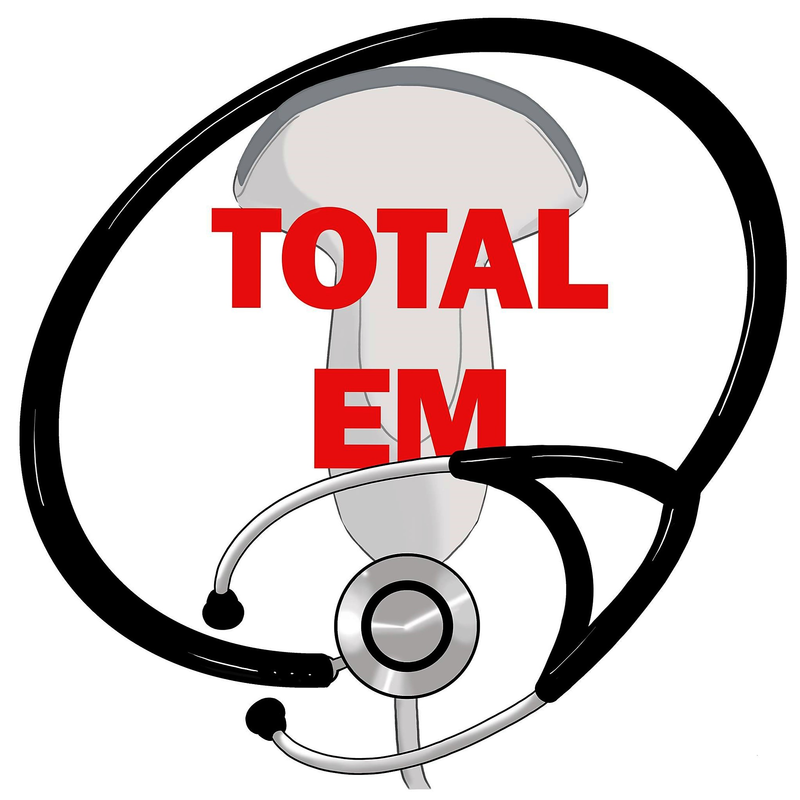|
With Physician Assistants (PAs) starting to celebrate 50 years of the profession (PA image from AAPA website), there is still debate as to the quality of care provided by PAs. There have been studies on the topic, but very little in the field of emergency medicine and the paper we discuss today helps address this issue. Today with our guest Patrick Bafuma we tackle that very question along with a discussion of PAs in emergency medicine in general.
Patrick Bafuma (Twitter picture below) is a PA who runs a site called EM in Focus. One of the papers he discussed there is also the topic of our discussion today titled Physician Assistant Management of Pediatric Patients in a General Community Department: A Real World Analysis. A PDF version is available here thanks to the Canadian Association of Physician Assistants (CAPA). There are some key points to mention from the paper that were discussed in the podcast. First, the recidivism rate is not entirely helpful from the paper. It did not exclude those follow-ups that were scheduled for patients to intentionally return to the department. Although this could still reflect those patients of more complex or uncertain diagnoses or illnesses/injuries that needed repeat evaluation, that is not exactly what the study was looking for and should not be ignored. However, the trends noted are similar to those of the actual admission rate with the admission rate being of course much lower in comparison. Again, some of these patients may have already needed admission as could have been planned on clinical follow-up with medical decision making already being established for the patient. This was not specifically discussed in the paper, but the use of admission to hospital may have been a better primary outcome of this paper instead of the 72 hour recidivism rate that was used for this study. Another issue brought up in the podcast for this paper is that although this was a study that captured 10,369 children aged 6 years or younger over a 24 month period, the overall numbers used in the final analysis such as percentage of recidivism and hospital admission were relatively low. Furthermore, when broken down by numbers such as Emergency Severity Index (ESI), these numbers are sometimes far too small to be of statistical benefit. A larger population such as a multi-center study would prove to be more beneficial. This could be done either with hospital groups or even agencies that hire PAs and physicians to staff various departments as they will most likely have this data available to them. There are even more talking points to consider, but listen to the podcast for those details. 
After discussing the paper, there was a lot to say about the relationship of physicians and PAs in medicine but especially in the emergency department.
It is important to mention that as PAs we respect and appreciate physicians and their role in emergency medicine. Without them, the PA profession could not truly exist and this paper nor this podcast is trying to demonstrate any form of superiority to physicians or other colleagues in the field of medicine. However, we cannot ignore the changes in medicine. Emergency medicine is the leader in many parts of the medical field and that includes the implementation of advances such as increasing the role of PAs. For this reason, it is important to affirm the safe and effective management of patients with such advances as we should with any other part of medicine. The paper discussed is one of those examples of affirming the role. We have discussed this before some with previous podcasts such as the one with Jim Ducanto where a physician may not always be the best person for a situation and/or should not be afraid to turn over care to another provider. There are many others out there such as RNs, PAs, NPs, or paramedics who may be more technically skilled or have a specific set of skills/experience that is worth considering. Physicians in general have more training for a particular field and can be a relative expert with more experience, but especially in emergency medicine, no one is an expert in every aspect and this must be recognized. With the changing of the times where there are a shrinking number of physicians and an increasing need for other clinicians such as PAs to help provide care, advancement of those professions is vital to continuing healthcare in a safe direction. For that reason, the physician will never die in the medical system and must be recognized as another important asset. It is vital as medicine changes and physicians along with others such as PAs take on more and different roles that we all work together. Teamwork and collaboration is a two-way street and the relationship built by PAs with many of their physicians reflects such a bond. We should never let pride or arrogance interfere with good and safe patient care. To that same measure, it was briefly mentioned that certain centers have or are starting to incorporate an approach where attending physicians are more hands off and direct care allowing others like residents, fellows, and PAs to do most of the direct management. One such example is University of Michigan's EC3 project that has a PowerPoint and it is also covered by EmCrit. This author also has experience with institutions that incorporate this such as Toledo Hospital's trauma team. We hope to have a physician on in the future to discuss what he believes is the future of medicine based on his experience over the years along with a separate podcast discussing advances in the PA profession such as Full Practice Authority and Responsibility. This should not be considered controversial but rather supportive of the PA and physician relationship with constructive feedback encouraged. Was this a good paper? What should we do in the future to allow better demonstration of the safety and effectiveness of clinicians in their respective feeds? We hope this is a lively but appropriate conversation. Give your feedback here or on the different sites we are located on such as Twitter or Facebook. Remember to look us up on Libsyn and on iTunes. If you have any questions comment below, email at [email protected], or send a message from the page. We hope to talk to everyone again soon. Until then, continue to provide total care everywhere.
0 Comments
Leave a Reply. |
Libsyn and iTunesWe are now on Libsyn and iTunes for your listening pleasure! Archives
August 2022
Categories |
||||||


 RSS Feed
RSS Feed